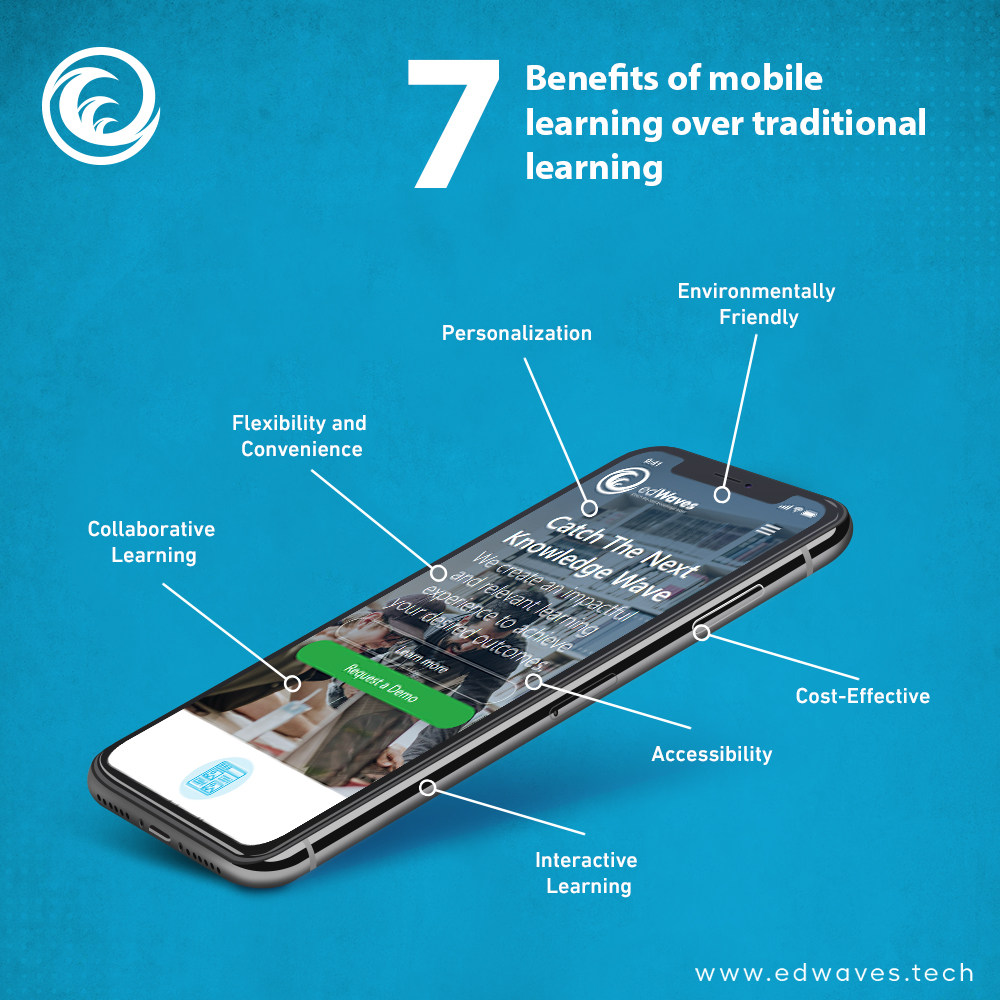The world of education has undergone a significant transformation in recent years with the rise of mobile learning. Mobile learning, also known as m-learning, is a form of education that utilizes mobile technology to deliver educational content to learners. Unlike traditional learning, mobile learning is not restricted to the physical classroom environment. Instead, it allows learners to access educational content from anywhere and at any time. In this essay, we will explore the seven benefits of mobile learning over traditional learning.
- Flexibility and Convenience
One of the most significant advantages of mobile learning is its flexibility and convenience. Traditional learning methods require learners to attend classes at a specific time and location, which can be inconvenient for some learners. On the other hand, mobile learning allows learners to access educational content at any time and from anywhere, as long as they have a mobile device and an internet connection.
- Personalization
Mobile learning allows learners to personalize their learning experience based on their individual needs and preferences. Learners can choose the topics they want to learn and the pace at which they want to learn. Additionally, mobile learning platforms use data analytics to track learners’ progress and provide personalized recommendations for further learning.
- Collaborative Learning
Mobile learning platforms also facilitate collaborative learning. Learners can connect with their peers and instructors through discussion forums, video conferencing, and other collaborative tools. This not only promotes social interaction but also provides an opportunity for learners to learn from each other’s experiences and perspectives.
- Interactive Learning
Mobile learning platforms also offer a wide range of interactive learning tools such as videos, quizzes, and simulations. These tools make learning more engaging and interactive, which helps learners retain information better.
- Accessibility
Mobile learning also improves accessibility for learners who face physical or geographical barriers to traditional learning. For example, learners with disabilities may find it difficult to attend physical classes, while learners in remote areas may not have access to quality education. Mobile learning eliminates these barriers and allows these learners to access educational content easily.
- Cost-Effective
Mobile learning is also cost-effective compared to traditional learning methods. It eliminates the need for physical classrooms, textbooks, and other materials, which can significantly reduce the cost of education. Additionally, mobile learning platforms can reach a larger audience, which further reduces the cost per learner.
- Environmentally Friendly
Mobile learning is also environmentally friendly as it reduces the use of paper, transportation, and other resources associated with traditional learning. By using mobile devices to access educational content, learners can significantly reduce their carbon footprint.
In conclusion, Using learning management systems through mobile learning offers several advantages over traditional learning methods. edWaves provides flexibility, personalization, collaborative learning, interactive learning, accessibility, cost-effectiveness, and environmental sustainability. As such, mobile learning is becoming an increasingly popular form of education, and it is likely to continue to grow in popularity in the coming years.

